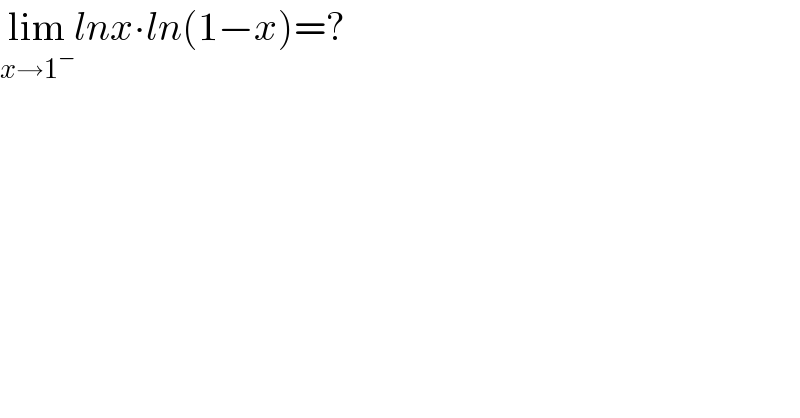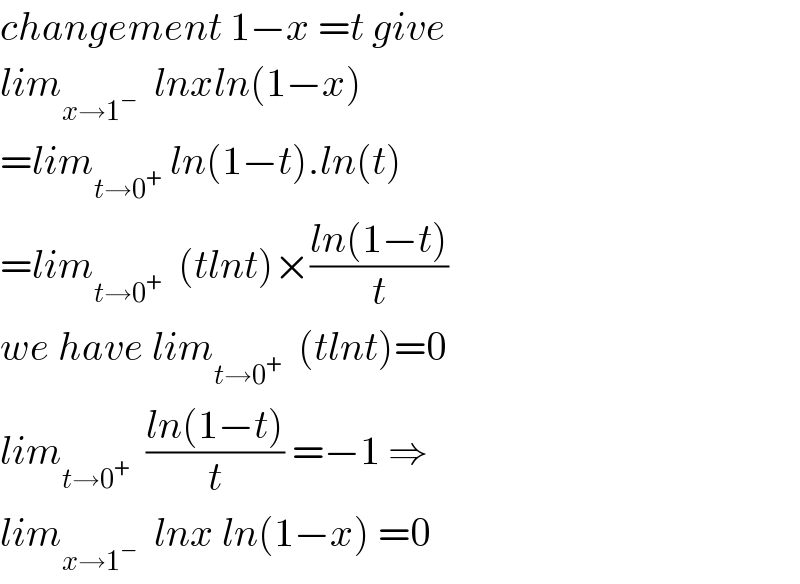
Question and Answers Forum
Question Number 78122 by Tony Lin last updated on 14/Jan/20

Commented by msup trace by abdo last updated on 14/Jan/20

Commented by Tony Lin last updated on 14/Jan/20

Commented by msup trace by abdo last updated on 14/Jan/20

Answered by john santu last updated on 14/Jan/20

